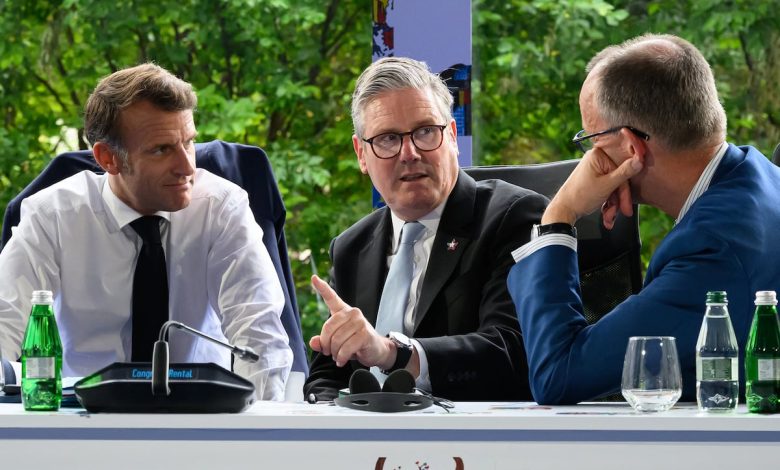Most Germans want Europe to have its own nuclear umbrella, poll finds

THE HAGUE, Netherlands — Nearly two-thirds of Germans support a European nuclear deterrent independent of the United States, according to a new poll released Monday, marking a dramatic shift in public opinion amid growing concerns about American commitment.
The survey found 64% of Germans back the concept of a European nuclear umbrella that doesn’t rely on Washington, with support spanning age groups, regions, and political parties — an unusual consensus in German policy debates. The poll was conducted by the well-regarded pollster Forsa and commissioned by the magazine “Internationale Politik.” Polling was conducted in mid-June, before U.S. strikes on Iran’s nuclear facilities, according to German press agency DPA, which reported on the findings.
Chancellor Friedrich Merz had already signalled his intention to pursue discussions with France and Britain about developing a collective nuclear strategy for Europe while still on the campaign trail last year. A poll this March showed that 54% of Germans were supportive of initiating such talks.
The findings reveal a complex German position on nuclear deterrence. While embracing a European solution, Germans remain opposed to their country developing its own atomic weapons, with 64% rejecting a German bomb when asked in March. This suggests that public support lies in participating in a European arrangement rather than Berlin going the step alone.
The new polling results reflect escalating anxiety about President Donald Trump’s commitment to European security, particularly fears he might withdraw the U.S. from its leading role in NATO. Currently, the United States extends its nuclear umbrella over Germany and the European NATO states, with American nuclear bombs stationed in Germany, Belgium, the Netherlands and Italy.
Until Russia’s invasion of Ukraine, a large and consistent majority of Germans were skeptical of American weapons based in their country.
Simultaneously, however, voices here grew louder that favored a degree of European strategic autonomy. In March 2025, 69% of Germans supported European countries building a common army, up from just 49% in 2015.
The issue holding back a so-called “Eurodeterrent” isn’t primarily technological — France’s or even Britain’s existing capabilities could serve as a foundation — but rather strategic, requiring fundamental changes in posture and trust-building among European partners.
The poll results also show Germans willing to spend substantially on defense, with 75% supporting increased EU member state military spending.
Linus Höller is a Europe correspondent for Defense News. He covers international security and military developments across the continent. Linus holds a degree in journalism, political science and international studies, and is currently pursuing a master’s in nonproliferation and terrorism studies.







